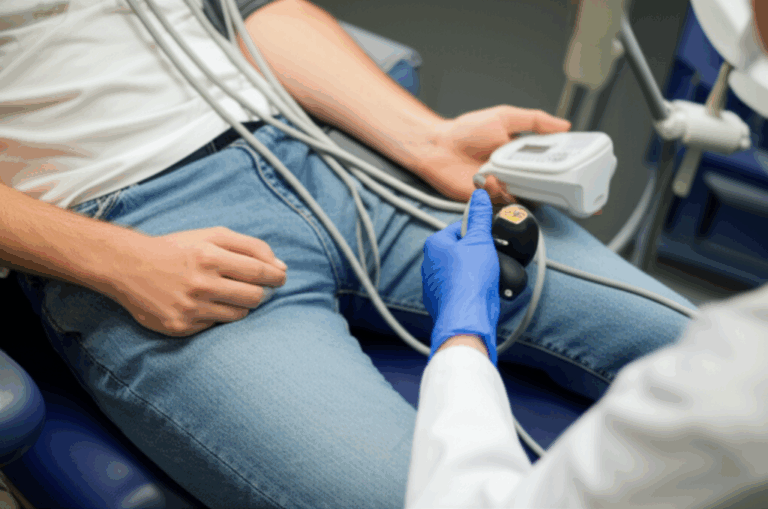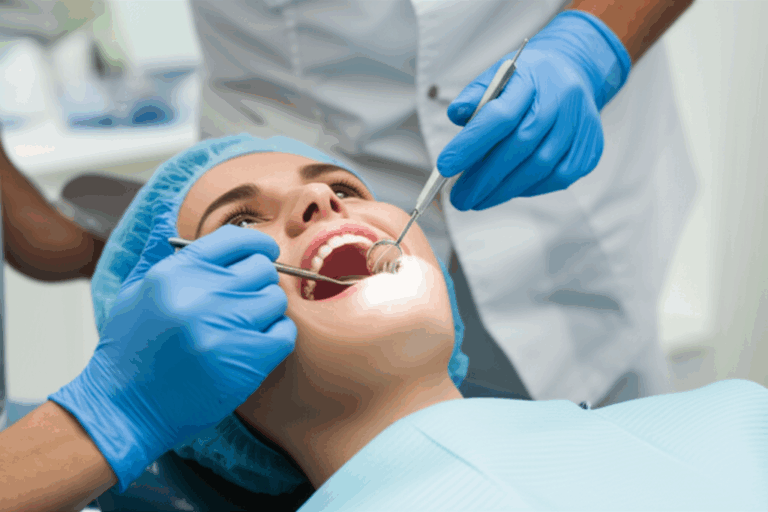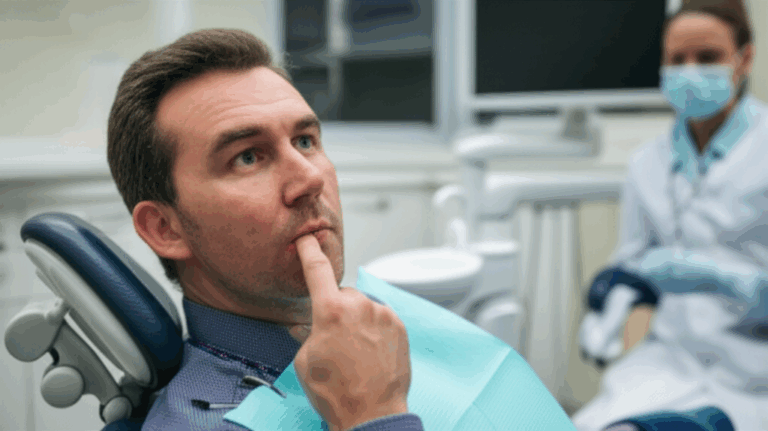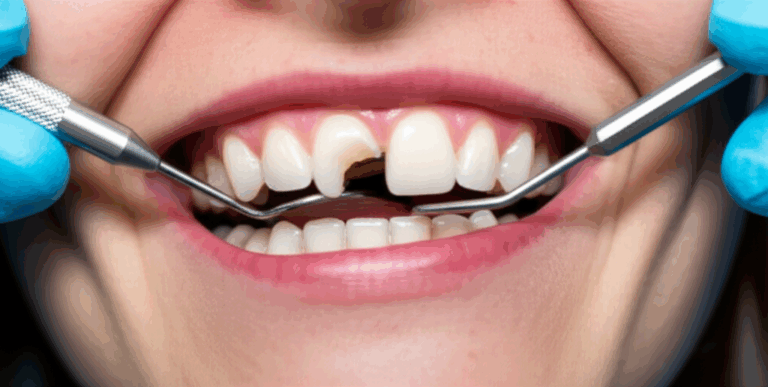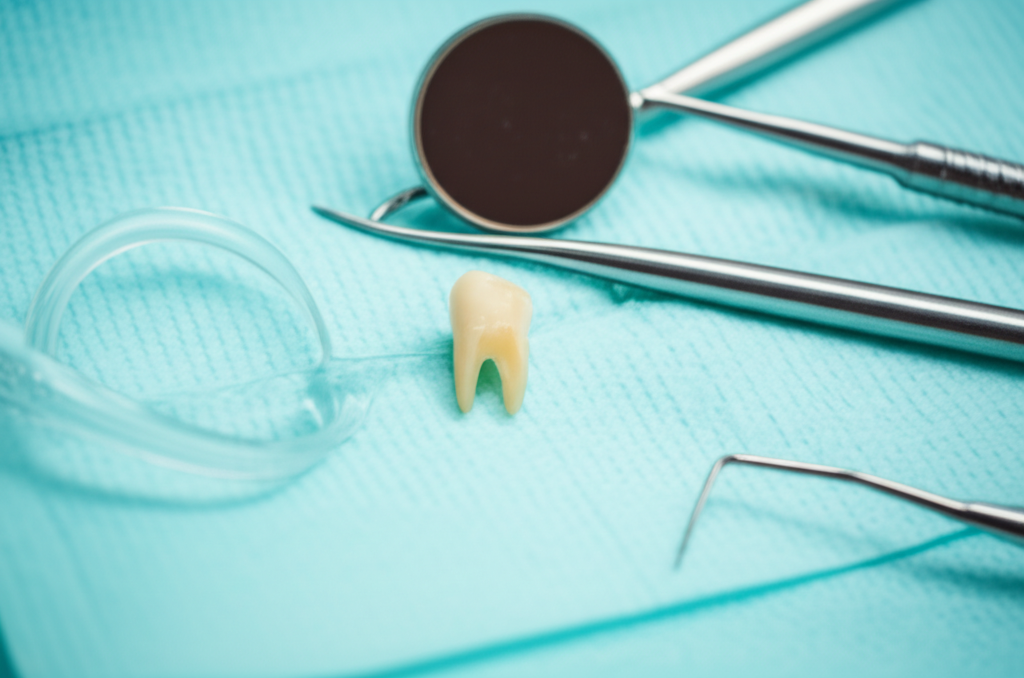
Why Did My Dentist Give Me Antibiotics After Tooth Extraction?
Understanding the “Why,” the “How,” and What It Means for Your Recovery
That moment when you get up from the dental chair, feeling a little numb but glad the tooth is out, and your dentist gives you a prescription for antibiotics—you might wonder, “Wait, am I sick? Do I really need these pills?” If that’s your question, you’re not alone. Many people are unsure about antibiotics after getting a tooth pulled, especially since we always hear not to take medicine unless you really need it.
Here’s a simple look at why your dentist gave you antibiotics after a tooth extraction, what that means for you, and how to handle this part of your healing without confusion.
In This Article
- Why Your Dentist Gave You Antibiotics
- What Happens During a Tooth Extraction: Simple Science, No Fancy Words
- When (And Why) Dentists Use Antibiotics After Tooth Removal
- Times When You May Not Need Antibiotics
- Which Antibiotics Are Usually Given for Dental Surgery?
- How to Take Antibiotics Safely
- Looking After Yourself After Tooth Pulling (With or Without Antibiotics)
- When Should You Call Your Dentist?
- Your Recovery Guide: Key Points & Next Steps
Why Your Dentist Gave You Antibiotics
Let’s answer the main question first: Why did my dentist give me antibiotics after a tooth extraction? It’s not always something they do—in fact, most people don’t need antibiotics for a simple tooth pulling. But when your dentist gives you a prescription, there’s a reason for it.
Most common reasons:
- Treating an infection already there, like an abscess or gum infection.
- Lowering the chance of getting a new infection if you have a health condition that makes infection risk higher.
- Dealing with a tough tooth removal (like an impacted wisdom tooth, a surgical removal, or when the tooth was close to your sinus).
- Helping people who have weaker immune systems and might have trouble fighting off infection on their own.
In short: If you left the dental office with antibiotics, it’s your dentist’s way of stopping an infection or helping your body heal smoothly.
What Happens During a Tooth Extraction: Simple Science, No Fancy Words
Think of your mouth like a busy city—your teeth, gums, and bones are full of life, even germs. Most of those germs are harmless, but some can cause problems, especially when you pull a tooth and leave behind an open spot.
Here’s what happens:
- Tooth extraction means taking out a tooth, which leaves a small hole where its roots were.
- A blood clot usually forms there, covering up the bone and starting the healing process.
- Sometimes, germs can get into the hole and cause an infection, especially if things were already infected or your body can’t fight them well.
- Rarely, those germs can get into the blood and cause problems in other parts of your body—like your heart or joints—if you have certain health issues.
That’s why dentists look at more than just the tooth—they check your overall health and any special risks you might have.
When (And Why) Dentists Use Antibiotics After Tooth Removal
Not every tooth pulling means you’ll get antibiotics. Dentists think about a few things before giving them, following rules from groups like the American Dental Association (ADA) and Centers for Disease Control and Prevention (CDC). Here’s why they might give you antibiotics:
1. You Already Had an Infection
- Dental Abscess: Sometimes the tooth was already infected (an abscess is a pocket of pus from germs).
- Big Gum Infection: Bad gum problems (periodontitis) make it easier for germs to spread during or after the tooth removal.
- Cellulitis: If the infection spreads into the face, antibiotics are needed to stop it from getting worse.
Example: If you came in with a really bad toothache and a puffy face, that means things are spreading, so antibiotics help before or right after pulling the tooth.
2. It Was a Difficult or Long Extraction
- Impacted Teeth or Surgical Removal: Teeth that haven’t come in all the way (like wisdom teeth under the gum or bone) are harder to take out and take longer, raising the risk of getting an infection.
- Opened Into Sinus or Big Defects: Sometimes, the hole left after a tooth comes out connects to your sinus, or the spot is really big (maybe after a bone graft), which makes infection more likely.
3. You Have a Medical Reason for More Protection
- Weak Immune System: If you have diabetes that’s not under control, are getting chemotherapy, have HIV/AIDS, or take steroid medicines, your body can’t fight germs as easily. Antibiotics give extra help.
- Heart or Joint Issues: Some people with heart problems (like artificial heart valves or a history of infections) or fresh joint replacements need antibiotics first to keep germs out of those areas.
Quick List of Higher-Risk People:
- Badly controlled diabetes
- Artificial heart valve or certain heart diseases
- Had an organ transplant
- On immune-suppressing medicines (for cancer, autoimmune diseases, etc.)
- HIV/AIDS
4. Lots of Germs in the Mouth (Not Brushing/Flossing Well)
If you already have a lot of plaque and swollen gums, germs have a better chance of infecting the area after a tooth is pulled. If you also have health risks, your dentist may think it’s better to give you antibiotics.
Still Not Sure?
“But my extraction seemed simple—do I still need antibiotics?”
For most healthy people with no health problems or signs of infection, you probably won’t need antibiotics. Your own immune system and good aftercare are usually enough.
Times When You May Not Need Antibiotics
Let’s get this clear. Most people with a healthy immune system and no infections don’t need antibiotics for a simple tooth pulling. Using antibiotics when you don’t have to. can let germs learn how to fight back, making them harder to treat later—so guidelines say not to use antibiotics too loosely.
You probably won’t need antibiotics if:
- It was a simple, easy extraction and there’s no swelling, pain, or pus.
- You don’t have any big health conditions or immune problems.
- There were no sinus or bone issues.
- You take care of your mouth, and infection risk is low.
Why does it matter?
Unneeded antibiotics can cause side effects (stomach upset, diarrhea, yeast infections), allergic reactions, and can create the big problem of antibiotic resistance.
Which Antibiotics Are Usually Given for Dental Surgery?
If you do need antibiotics, your dentist picks one that works best for you and the germs likely to be in your mouth.
Most Common Choices:
- Amoxicillin: Most common for healthy adults—it treats a wide range of germs.
- Clindamycin: For people who can’t take penicillins.
- Metronidazole: Sometimes used with amoxicillin for deep or stubborn infections.
- Others (Rare): Penicillin VK, azithromycin (used if you have certain allergies).
How do antibiotics help?
Think of them like special cleaners—they kill germs or stop them from growing, which lets your body rest and recover.
How long do you take them?
- Usually for 3 to 7 days (maybe a bit longer if it’s a bad infection). Make sure to finish all the pills, even if you feel better, so germs can’t come back or get stronger.
How to Take Antibiotics Safely
Getting prescribed medicine is just the first step. What you do next is just as important.
Easy Dos and Don’ts:
Do:
- Take your dentist’s advice exactly—don’t skip pills or stop early.
- Take your pills at the right times (like every 8 or 12 hours) for best results.
- Take them with food if they make your stomach upset, unless told not to.
- Use them all up, even if you start feeling better.
Don’t:
- Don’t take extra if you miss one—just take the regular next dose.
- Don’t give your antibiotics to someone else (it could hurt them).
Possible Side Effects
Most people deal fine with antibiotics, but watch for:
- Stomach aches, feeling sick, or diarrhea
- Small rashes or itching
Rare but Serious:
- Bad allergic reactions: Swelling, trouble breathing, hives, or a full-body rash. Call for help right away!
- Bad or bloody diarrhea: Might mean a dangerous gut infection (C. difficile). Tell your dentist or doctor right away.
- Other things: Yellow eyes, very bad stomach pain, or anything that worries you—call your doctor or dentist.
Taking Other Medicines or Drinks:
Always tell your dentist about any other medicines or vitamins you take, as some can mix badly with antibiotics—like blood thinners, birth control, alcohol, and others.
Fun tip:
Alcohol can make side effects from some antibiotics worse and slow your healing. Always check if a drink is okay while on your pills.
Looking After Yourself After Tooth Pulling (With or Without Antibiotics)
No matter if you got antibiotics or not, caring for your mouth is the key to healing well.
Here are the basics:
Right After Getting Your Tooth Out:
- Bite down on a gauze pad: This helps stop the bleeding.
- Get some rest: Take it easy so your body can heal.
- Don’t spit, use straws, or smoke: These can knock out your blood clot and give you a very sore “dry socket.”
Cleaning Your Mouth:
- Start gentle rinsing: Wait 24 hours, then rinse with saltwater (not mouthwash) a few times a day.
- Don’t brush the empty spot: Brush your other teeth, but leave the tooth spot alone for a bit.
Pain & Swelling:
- Ice packs: Put on for 20 minutes, then off for 20, especially for the first day or two.
- Painkillers: Use as your dentist says—ibuprofen, acetaminophen, or something they prescribe.
What to Eat:
- Soft, cool food: Like yogurt, mashed potatoes, scrambled eggs, or smoothies (no straws!).
- Drink plenty of water.
Avoid these:
- Hard, sharp, spicy, or hot foods for a while after.
- Hard exercise the first couple of days.
Special tip if you have dentures:
If you get new teeth (like from a removable denture lab), carefully follow what your dentist says about using and cleaning them.
When Should You Call Your Dentist?
Not sure what’s normal and what’s not? Watch out for these:
- Pain or swelling that gets worse several days later—not just right after
- Bleeding that won’t stop (soaking through gauze over an hour)
- Pus, yucky taste, or bad smell from the tooth spot
- Fever over 101°F (38.3°C)
- Trouble swallowing or breathing
- Rash, hives, or swelling after taking your antibiotics
Don’t wait if you’re worried—your dentist wants to help, and it’s always better to ask.
Your Options Explained: Home vs. Dentist Prevention
Antibiotics aren’t the only way to look after yourself. Avoiding infection and healing right after a tooth pull needs work from both you and your dentist.
What You Can Do at Home
- Follow aftercare directions: They’re there to keep problems away.
- Keep your mouth clean (but gentle): This keeps germs down.
- Eat good meals: Healthy food helps your body fix itself.
- Tell your dentist early about problems: Don’t just wait and hope it gets better.
What Your Dentist Can Do
- Antibiotics (when really needed): To fight or stop infection in certain cases.
- Let you know when to come back: Especially if your health or extraction was complicated.
- Extra dental work after you heal: Like a crown and bridge or even talking about dental implants for filling the gap.
Who Is This For? The Good Candidate Section
Wondering if you’d need antibiotics in the future for more extractions? Here’s when you might:
- You’re a good fit for antibiotics if:
- You have a big risk for infection due to health.
- The spot is already infected.
- The tooth removal is tricky or took a long time.
- But if you’re healthy and it’s an easy pull, you probably won’t need them. Just follow your dentist’s advice and look after your mouth.
Frequently Asked Questions
“What if I forget a dose of my antibiotics?”
No problem. Take it as soon as you remember. Don’t double up. Try to keep taking them at the right times.
“What if I’m allergic to penicillin?”
Tell your dentist first. They can give you something else, like clindamycin or azithromycin.
“How soon do antibiotics start to work?”
Most people feel better (less pain, swelling) within a day or two. If you don’t, or things seem worse, call your dentist.
“Can antibiotics stop dry socket?”
No—antibiotics don’t stop dry socket. Best way to avoid dry socket is not smoking, spitting, or using straws too soon.
At-a-Glance: Data and Guidelines
| Scenario | Antibiotics Needed? | Notes |
|---|---|---|
| Simple extraction, healthy adult | No | Focus on good care, not medicine |
| Infection or abscess | Yes | Stops infection from spreading |
| Surgical (impacted) removal | Sometimes | For tough or long extractions, often a good idea |
| Badly controlled diabetes | Yes | Infection risk is higher |
| Artificial heart valve | Yes, as prevention | Stops infection in the heart |
| Recent joint replacement | Maybe | Ask your doctor—rules can change |
| Chemo or weak immune system | Yes | Your body needs the extra help |
| Sinus or bone graft involved | Yes | Protects the area |
| Penicillin allergy | No (use other) | Dentist gives you a different one |
Sources: American Dental Association (ADA), Centers for Disease Control and Prevention (CDC), dental health rules.
Your Healthy Takeaway: The Simple Stuff
Getting antibiotics for a tooth extraction isn’t “over the top”—it’s about smart protection where there’s higher risk. Most healthy people with easy extractions heal fine without them. But if you need them, those pills help you heal better and safer.
Main things to remember:
- Follow your dentist’s advice—they don’t hand out antibiotics for no reason.
- Finish your full dose—don’t stop early even if you feel fine.
- Do what your dentist says for aftercare—that’s your best way to avoid problems.
- Ask questions—your dentist is happy to explain things.
Want to know more about dental restorations or the china dental lab industry? Take a look at our other articles. You can also learn about new options like emax dental lab and high-tech digital dental lab tools that are changing dentistry.
What’s Next for You
Easy Steps:
Remember:
You’re not just a “tooth” or a “case”—you’re a person with your own story. Your dentist wants to help you move forward with a healthy mouth. Always ask questions and look after yourself. Knowing is always better than guessing.
For more easy-to-read info about everything from aftercare to advanced tooth fixes, check out our other articles—and take your first step toward a healthy, happy smile.

